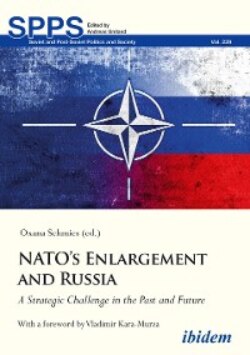Читать книгу NATO’s Enlargement and Russia - Группа авторов - Страница 8
Constellations of Today and Tomorrow
ОглавлениеThe year 2020 has been marked by a pandemic which has put the West under significant pressure. It is also a year that saw the election of a new American President, Joe Biden. His election brings hope for new American strategies for strengthening transatlantic relations, as well as a new approach to Russia. Outgoing President Donald Trump withdrew the United States from the Open Skies Treaty, on November 22, 2020. On November 25, NATO presented its strategic position paper “NATO 2030.” It lists Russia as the “main military threat to the Alliance” for the next ten years. Whatever the future holds, unresolved problems and the need to deal with Russia will remain.
These problems are often inherited from the 1990s. The end of the Cold War did not solve Europe’s security issues.4 While East-Central Europe, the so-called “Eastern Flank” of NATO, is now protected by Article 5 of the Washington Treaty, most of the post-Soviet space has become a victim of the unsolved European security issues.
Above all, Ukraine remains a “testing ground” for Russia’s intentions within the European territory since 2014. Since August 2020, the emerging Belarusian nation is struggling peacefully against the regime of Lukashenko supported by Putin. The people of Ukraine and Belarus need Western support. Entering a “European way” of its further development seems for Belarus to be only a question of time. Russia will presumably continue to play a malicious role in the Southern Caucasus. The Russian population itself is a major victim of authoritarian Russian regime. It should be supported by the West, too.
The US and Europe have to address these new political realities with novel, clear and sustainable strategies. As of early 2021, the time of equivocation is over. Europe is searching for its new security policy role within the transatlantic partnership. The United States too is currently redefining its foreign policy. The year 2021 may thus become a turning point for Western strategic development. NATO’s approach towards Russia for the years to come remains so far undefined.
Information technologies and artificial intelligence are changing the patterns of people’s social and political behavior. Many old systems of decision, checks and balances are no longer functioning. A different world system is emerging where, due to digitalization, individuals get more opportunities for direct political participation and influence reducing or even replacing the predominant actorness of nation-states or unwieldy international organizations. These new constellations must be taken into account by policy makers.
